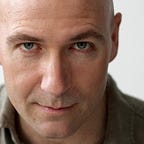Où est Charlie
I’ve been thinking, and I take it back. I’m not Charlie.
Some weeks ago a terrible thing happened and all around the world people turned to each other and shared their outrage. It was all over the news, for a time. It was all people talked about when they weren’t talking about anything else.
As an artist and writer, the whole thing felt disturbingly close to home, and in solidarity with the victims in Paris, I courageously changed my Facebook profile pic (I went with the black and white sketch of the Statue of Liberty with the words Je suis Charlie — the French makes it more meaningful). I valiantly shared collections of cartoonists’ reactions to the event, and brazenly liked posts by friends who did the same. I even retweeted #JesuisAhmed, in loving support and honor of Ahmed Merabet, the policeman who gave his life defending cartoonists who spent much of their time mocking his faith.
Never underestimate the power of slacktivism to massage the conscience.
Speaking with friends, I pointed to the recent attacks on Sony and threats to individual cinemas surrounding the scheduled-and-then-scrapped release of the once-meaningless The Interview. I said I felt as though Thinking itself was under attack — ironic, given the low-brow nature of the perceived offenses — and that the War on Terror, from the other side, is a War on Uncomfortable Ideas.
Freedom of Expression is every bit Freedom of Thought. When I teach, I demand the best writing from my students, many of whom do not consider themselves decent writers in any sense. In response to their sighs and rolling eyes and worried eyebrows I explain that the inability to properly communicate a worthwhile idea essentially renders that idea worthless. And so, in defense of every idea which ever has or ever may be expressed to bring about a better world, I stated that I am Charlie.
But I take it back.
The magazine Charlie Hebdo exists with the expressed purpose of offending as many people as possible. We have a word for when people — not publications — behave in this manner, and that word is asshole. Much of what the magazine published under the banner of satire was never intended to be funny in any comedic sense, but rather to draw a reaction from shocking and daring and brazen offense. We all know people like this, and we don’t call them heroes. We name them after body parts.
The people at Charlie Hebdo knew this, know this, and accept it. They marginalize themselves and dutifully serve their roles as Equal Opportunity Offenders not to make you laugh, but to make you think. To force you to defend that which you thoughtlessly hold dear and to challenge you to justify your paradoxes. About a century ago, Don Marquis noted that “If you make people think they are thinking, they’ll love you. If you really make them think, they’ll hate you.” Perhaps nothing and no one in our present day serves to prove that true better than Charlie Hebdo.
So I don’t see the cartoonists, or staffers, or even the security detail, at Charlie Hebdo as martyrs to Free Speech. I see them as martyrs to Thought.
Willing martyrs, it should be added. For while Sony and various cinemas pulled The Interview on account of the threat of violence, Charlie Hebdo actually experienced it in clear and unambiguous fashion two years ago when their offices were firebombed. Still they carried on.
Why? It couldn’t have been for the money — until the events of last week the magazine barely sold 60,000 copies and was on the brink of going under. And I cannot see how living with a very non-figurative target on your back could be much fun, either. So, why?
Because they believe in something more important than the right to express uncomfortable ideas. They believe in the imperative necessity of it. And in that sense, there are very few people in history who have the right to declare Je suis Charlie. The Martin Luther Kings of the world. The Gandhis. Jesus of Nazareth. Those people who, regardless of how religions and humanity may have bastardized their teachings since, knowingly made targets of themselves by calling out hypocrisy, by fearlessly looking into the eyes of aggressors and unflinchingly offering themselves as tribute to the awesome power of Uncomfortable Ideas.
In this sense, it is belittling to promote ourselves to being Charlie. Indeed, in this sense, I worry that we actually have much more in common with the villains of this story than we do the heroes.
How else can one explain the unbridled growth of politicized news organizations like Fox or MSNBC? Crippled by fear of the notion that What We Hold Dear might be in any way flawed, we listen to the news which tells us we are right and berates opposing opinion — regardless of how well credentialed — for the sake of reassurance. What is the difference, other than scale, between attacks on an individual’s character and on their physical person when both are designed to limit their expression?
We are eager to call the Paris attackers cowards. After all, how cowardly must you be to arm yourself to the teeth in order to storm an office full of cartoonists? And yet I ask, what were these cowards afraid of, exactly? Unarmed artists? Or their ideas? And if it is the latter, how different really are They from We?
In a democracy, debate is meant to be a crucible for ideas — burning off the impurities and melding the best possible traits of otherwise disparate points of view. In a democracy, Uncomfortable Ideas are essential for growth. They test our assumptions and illuminate our hypocrisies. They require the best of us and they make us stronger. And until we are willing to get comfortable with getting uncomfortable, we cannot claim that Nous sommes tout Charlie. We are not.
But we should be.
